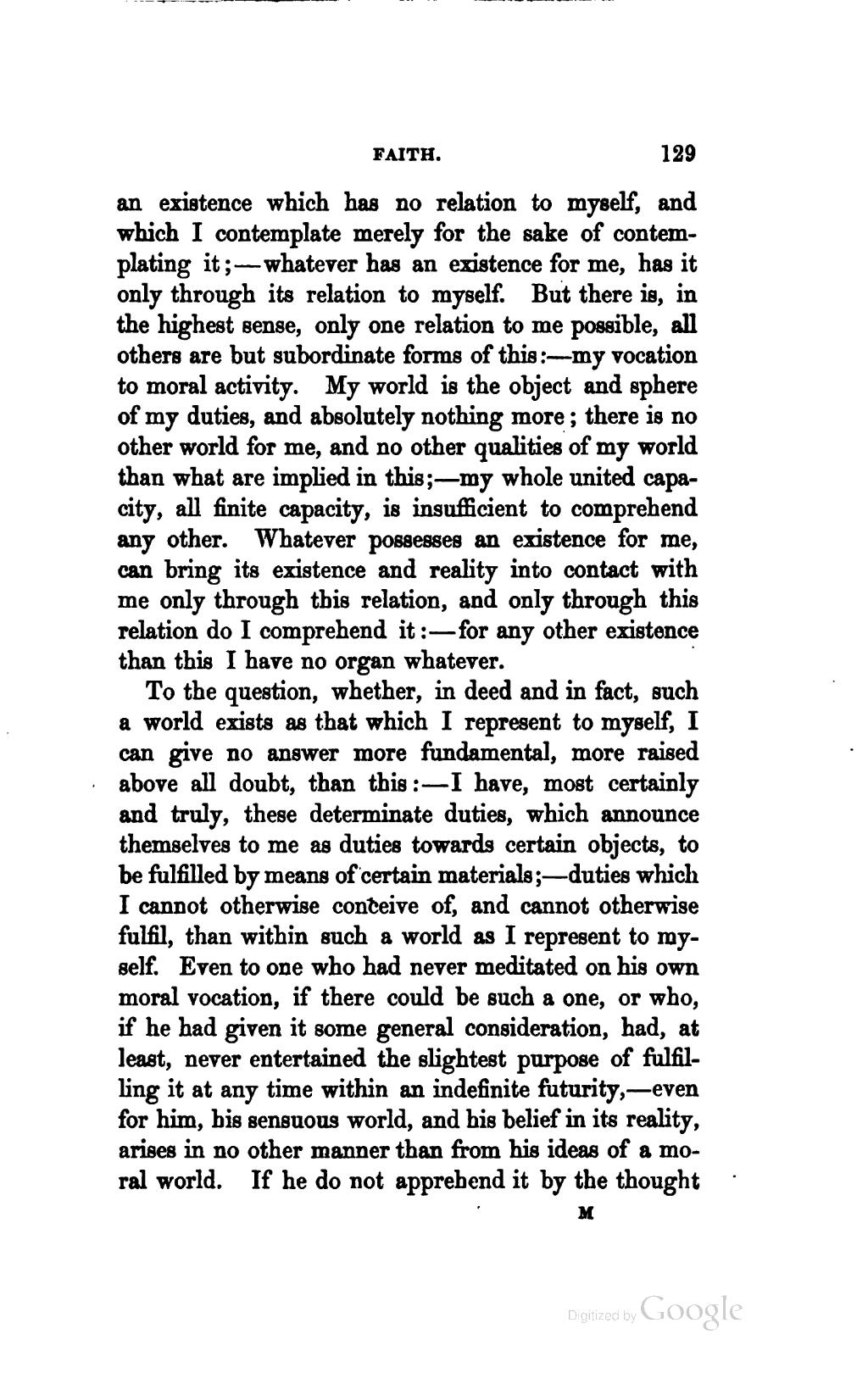an existence which has no relation to myself, and which I contemplate merely for the sake of contemplating it;—whatever has an existence for me, has it only through its relation to myself. But there is, in the highest sense, only one relation to me possible, all others are but subordinate forms of this:—my vocation to moral activity. My world is the object and sphere of my duties, and absolutely nothing more; there is no other world for me, and no other qualities of my world than what are implied in this;—my whole united capacity, all finite capacity, is insufficient to comprehend any other. Whatever possesses an existence for me, can bring its existence and reality into contact with me only through this relation, and only through this relation do I comprehend it:—for any other existence than this I have no organ whatever.
To the question, whether, in deed and in fact, such a world exists as that which I represent to myself, I can give no answer more fundamental, more raised above all doubt, than this:—I have, most certainly and truly, these determinate duties, which announce themselves to me as duties towards certain objects, to be fulfilled by means of certain materials;—duties which I cannot otherwise conceive of, and cannot otherwise fulfil, than within such a world as I represent to myself. Even to one who had never meditated on his own moral vocation, if there could be such a one, or who, if he had given it some general consideration, had, at least, never entertained the slightest purpose of fulfilling it at any time within an indefinite futurity,—even for him, his sensuous world, and his belief in its reality, arises in no other manner than from his ideas of a moral world. If he do not apprehend it by the thought
